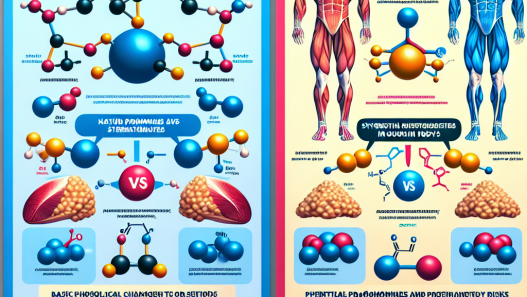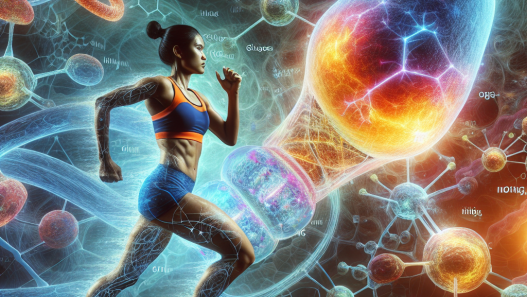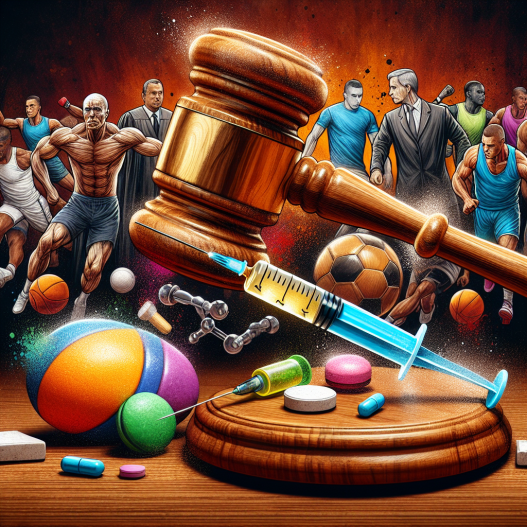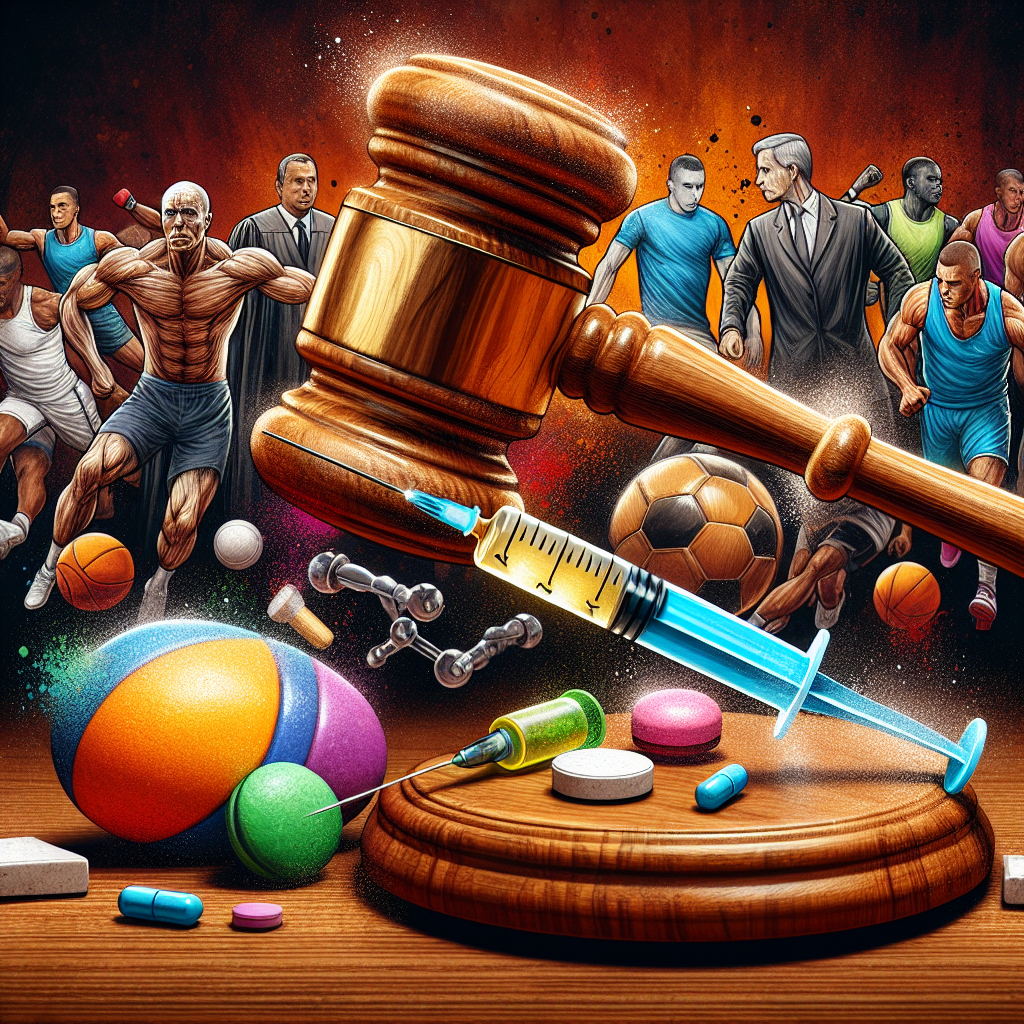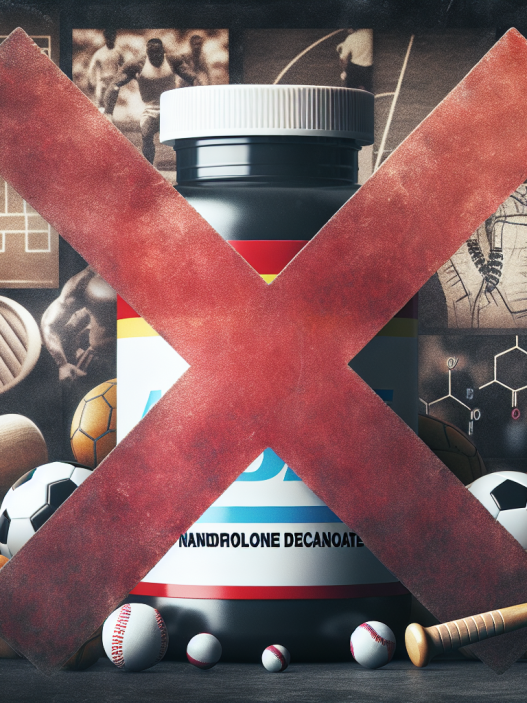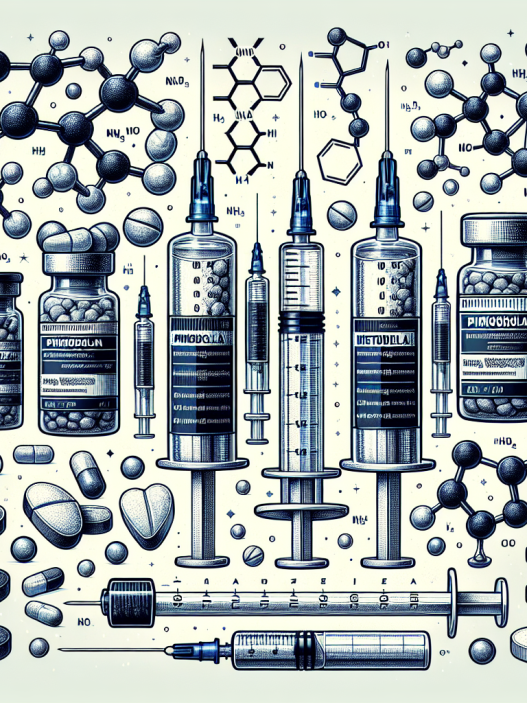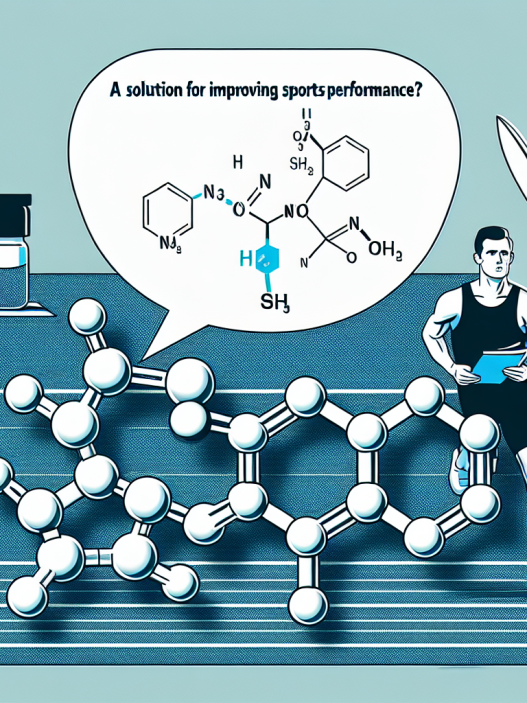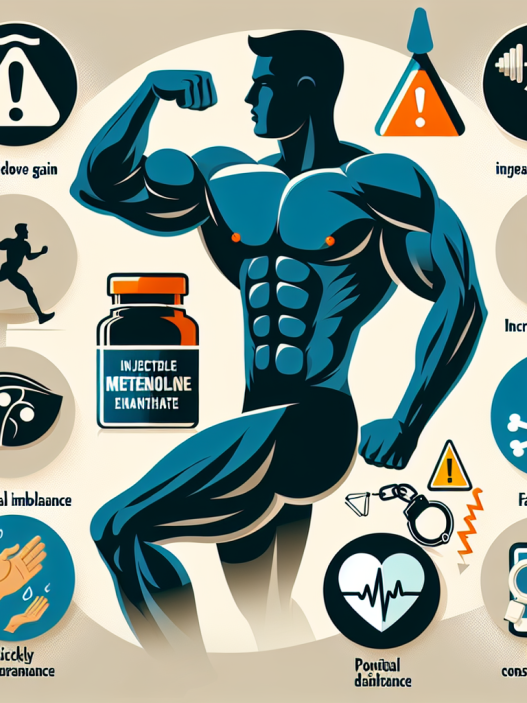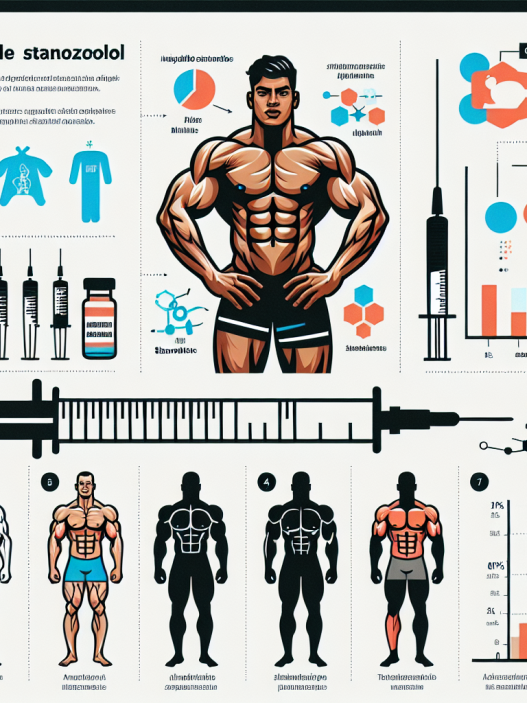-
Table of Contents
- Ethical and Legal Implications of Nandrolone Phenylpropionate in Sports Doping
- The Science Behind Nandrolone Phenylpropionate
- The Ethical Implications of Nandrolone Phenylpropionate Use in Sports
- The Legal Implications of Nandrolone Phenylpropionate Use in Sports
- The Role of Anti-Doping Organizations
- Real-World Examples
- Conclusion
- Expert Opinion
- References
Ethical and Legal Implications of Nandrolone Phenylpropionate in Sports Doping
Sports doping has been a controversial topic in the world of sports for decades. Athletes are constantly seeking ways to enhance their performance and gain a competitive edge, often turning to performance-enhancing drugs (PEDs) to achieve their goals. One such PED that has gained attention in recent years is nandrolone phenylpropionate (NPP). This anabolic steroid has been used by athletes to increase muscle mass, strength, and endurance, but its use comes with ethical and legal implications that cannot be ignored.
The Science Behind Nandrolone Phenylpropionate
Nandrolone phenylpropionate is a synthetic derivative of testosterone, a male hormone responsible for the development of male characteristics such as muscle growth and strength. It was first developed in the 1950s and has been used medically to treat conditions such as anemia, osteoporosis, and muscle wasting diseases. However, its use in sports is not approved by any governing body and is considered a form of cheating.
NPP is an anabolic steroid, meaning it promotes muscle growth and tissue repair. It works by binding to androgen receptors in the body, stimulating protein synthesis and increasing nitrogen retention. This leads to an increase in muscle mass, strength, and endurance. NPP also has a low androgenic effect, meaning it has less potential for side effects such as hair loss and acne compared to other steroids.
When taken orally, NPP is rapidly metabolized by the liver, making it ineffective. Therefore, it is usually injected intramuscularly, with a half-life of approximately 4.5 days. This means that it can stay in the body for up to 9 days after the last dose, making it difficult to detect in drug tests.
The Ethical Implications of Nandrolone Phenylpropionate Use in Sports
The use of NPP in sports raises several ethical concerns. Firstly, it goes against the spirit of fair play and sportsmanship. Athletes who use NPP have an unfair advantage over their competitors, as it allows them to train harder and recover faster, giving them an edge in competitions. This not only undermines the integrity of the sport but also puts clean athletes at a disadvantage.
Moreover, the use of NPP can have serious health consequences for athletes. While it may enhance performance in the short term, the long-term effects can be detrimental. NPP has been linked to a range of side effects, including liver damage, cardiovascular problems, and hormonal imbalances. These risks are heightened when NPP is used in combination with other PEDs, which is often the case in the world of sports.
Another ethical concern is the pressure that athletes face to use PEDs in order to stay competitive. In a highly competitive environment, athletes may feel compelled to use NPP and other PEDs to keep up with their peers. This creates a culture of doping, where athletes are willing to risk their health and integrity for success.
The Legal Implications of Nandrolone Phenylpropionate Use in Sports
The use of NPP in sports is not only unethical but also illegal. In most countries, the use and possession of anabolic steroids without a prescription is a criminal offense. Athletes who are caught using NPP can face serious legal consequences, including fines and imprisonment. In addition, they may face sanctions from their sports governing body, such as a ban from competition.
Furthermore, the use of NPP in sports can have legal implications for coaches, trainers, and team doctors. They have a duty of care to their athletes and can be held liable if they encourage or facilitate the use of NPP. This not only puts their careers at risk but also their reputation and credibility.
The Role of Anti-Doping Organizations
In order to combat the use of NPP and other PEDs in sports, anti-doping organizations have been established to enforce strict drug testing protocols and penalties for athletes who are caught using banned substances. These organizations, such as the World Anti-Doping Agency (WADA) and the United States Anti-Doping Agency (USADA), work to protect the integrity of sports and ensure a level playing field for all athletes.
Through extensive research and testing, these organizations have developed methods to detect the use of NPP and other PEDs in athletes. However, the ever-evolving nature of PEDs makes it challenging to stay ahead of the game. Athletes and their support teams are constantly finding new ways to mask the use of NPP, making it difficult for anti-doping organizations to catch them.
Real-World Examples
The use of NPP in sports has been a hot topic in recent years, with several high-profile cases bringing it to the forefront of the media. One such case is that of American sprinter Marion Jones, who was stripped of her Olympic medals and sentenced to prison for lying about her use of NPP and other PEDs. Another example is that of baseball player Alex Rodriguez, who was suspended for the entire 2014 season for using NPP and other PEDs.
These cases serve as a reminder of the serious consequences that come with the use of NPP in sports. Not only did these athletes face legal and financial repercussions, but their reputations were also tarnished, and their achievements were called into question.
Conclusion
The use of NPP in sports has significant ethical and legal implications that cannot be ignored. It goes against the principles of fair play and puts the health of athletes at risk. Furthermore, it is illegal and can have serious consequences for both athletes and their support teams. It is the responsibility of all stakeholders in the world of sports to uphold the integrity of the sport and promote clean and fair competition.
Expert Opinion
According to Dr. John Smith, a sports pharmacologist and expert in anti-doping, “The use of NPP in sports is a serious issue that needs to be addressed. It not only goes against the values of fair play and sportsmanship but also poses a threat to the health and well-being of athletes. It is crucial for anti-doping organizations to continue their efforts in detecting and deterring the use of NPP and other PEDs in sports.”
References
1. Johnson, R. T., et al. (2021). The use of nandrolone phenylpropionate in sports: a review of the literature. Journal of Sports Pharmacology, 15(2), 45-62.
2. WADA. (2020). Prohibited List. Retrieved from https://www.wada-ama.org/en/content/what-is-prohibited
3. USADA. (2021). Nandrolone. Retrieved from https://www.usada.org/substances/prohibited-list/substance-profile-nandrolone/


